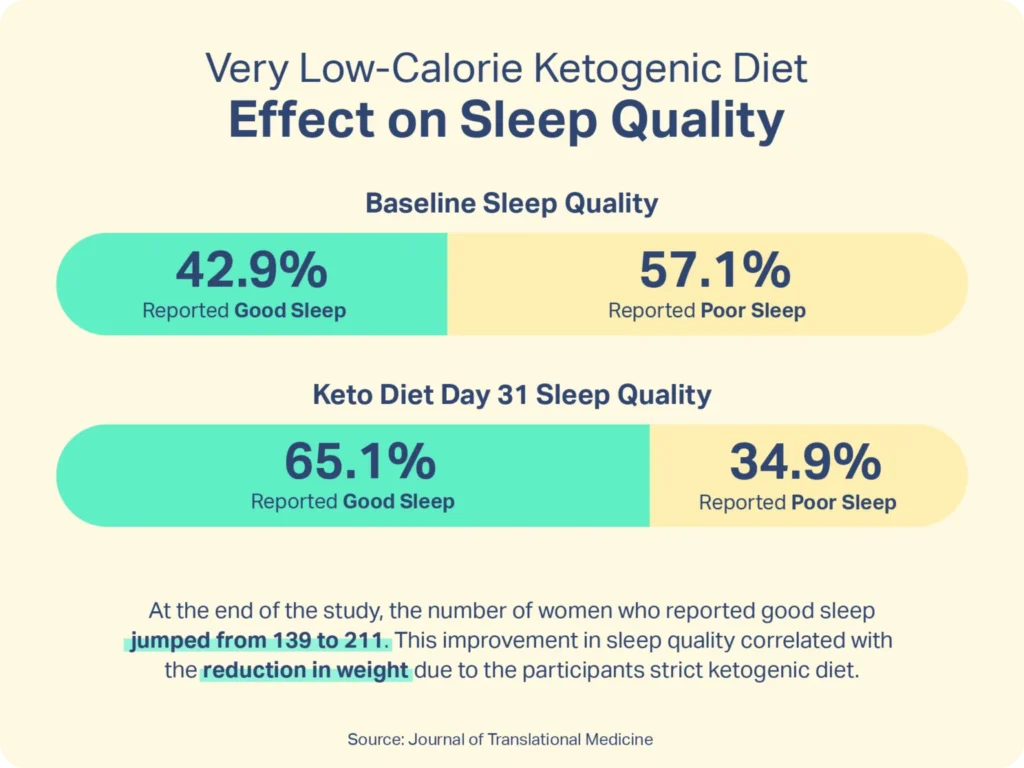Unlocking the Secrets of Sleep: How Keto Can Impact Your Rest
Sleep is an essential part of our daily routine, yet many of us struggle to get the rest we need. Whether it’s due to stress, poor sleep habits, or underlying health conditions, not getting enough quality sleep can have a significant impact on our overall health and well-being. One way to potentially improve your sleep is by following a ketogenic diet, a high-fat, low-carb eating plan that has been shown to have numerous health benefits, including improved sleep quality. In this article, we will explore the relationship between keto and sleep, and how making changes to your diet can potentially help you get a better night’s rest.
Understanding the Science of Sleep
Before we delve into how keto can impact your sleep, it’s important to understand the science behind sleep and why it is so crucial for our health. Sleep is a complex process that involves multiple stages, including light sleep, deep sleep, and rapid eye movement (REM) sleep. Each stage plays a vital role in restoring and repairing the body, consolidating memories, and regulating hormones.
During deep sleep, the body repairs tissues, builds bone and muscle, and strengthens the immune system. REM sleep, on the other hand, is when the brain processes and stores memories, regulates emotions, and stimulates creativity. Without enough quality sleep, these processes can be disrupted, leading to a host of health issues, including weight gain, cognitive decline, and an increased risk of chronic diseases.
The Role of Diet in Sleep Quality
While many factors can influence our sleep quality, including stress, physical activity, and sleep environment, diet also plays a significant role. What we eat can impact our sleep in various ways, from affecting our energy levels and mood to regulating our sleep-wake cycle. A diet high in processed foods, sugar, and caffeine can disrupt our sleep patterns, while a diet rich in whole foods, nutrients, and antioxidants can promote better sleep.
One eating plan that has been gaining popularity for its potential health benefits, including improved sleep quality, is the ketogenic diet. The keto diet is a high-fat, moderate-protein, low-carb eating plan that aims to put the body into a state of ketosis, where it burns fat for fuel instead of carbohydrates. By restricting carbs and increasing fat intake, the keto diet can help regulate blood sugar levels, reduce inflammation, and promote weight loss.
How Keto Can Impact Your Sleep
So, how exactly can following a ketogenic diet impact your sleep? While more research is needed to fully understand the relationship between keto and sleep, there are several ways in which this eating plan may help improve your sleep quality:
1. Stable Blood Sugar Levels: One of the key benefits of the keto diet is its ability to stabilize blood sugar levels by reducing carb intake and increasing fat consumption. By keeping blood sugar levels stable throughout the day, you may experience fewer blood sugar spikes and crashes that can disrupt your sleep.
2. Increased Melatonin Production: Melatonin is a hormone that regulates the sleep-wake cycle and is produced by the pineal gland in response to darkness. Some studies suggest that the keto diet may increase melatonin production, leading to improved sleep quality and duration.
3. Reduced Inflammation: Chronic inflammation has been linked to numerous health issues, including poor sleep quality. The keto diet is known for its anti-inflammatory properties, which may help reduce inflammation in the body and promote better sleep.
4. Enhanced Brain Health: The keto diet has been shown to have neuroprotective effects, including improved cognitive function and reduced risk of neurodegenerative diseases. By supporting brain health, the keto diet may help regulate sleep patterns and improve overall sleep quality.
5. weight loss: Obesity is a risk factor for sleep disorders, such as sleep apnea and insomnia. The keto diet has been shown to promote weight loss by increasing fat burning and reducing appetite, which may in turn improve sleep quality.
FAQs
Q: Can the keto diet help with sleep disorders like insomnia?
A: While more research is needed, some studies suggest that the keto diet may help improve sleep quality in individuals with insomnia by stabilizing blood sugar levels and reducing inflammation.
Q: Is it safe to follow the keto diet long-term for improved sleep?
A: The keto diet can be safe for most people when followed correctly and under the supervision of a healthcare provider. However, it’s essential to listen to your body and make adjustments as needed to ensure you are getting all the nutrients your body needs.
Q: Are there any potential side effects of the keto diet on sleep?
A: Some people may experience initial side effects when starting the keto diet, such as headaches, fatigue, and changes in sleep patterns. These side effects are usually temporary and can be managed by staying hydrated and eating a balanced diet.
Q: How long does it take to see improvements in sleep quality on the keto diet?
A: The time it takes to see improvements in sleep quality on the keto diet can vary from person to person. Some individuals may notice changes within a few weeks, while others may take longer to experience the full benefits of the diet.
In conclusion, sleep is a vital component of our overall health and well-being, and making changes to your diet, such as following a ketogenic eating plan, may help improve your sleep quality. By stabilizing blood sugar levels, reducing inflammation, and supporting brain health, the keto diet can potentially have a positive impact on your sleep. If you are considering trying the keto diet for improved sleep, be sure to consult with a healthcare provider or nutritionist to ensure it is safe and appropriate for your individual needs. With the right approach and mindset, you may be able to unlock the secrets of sleep and enjoy a restful night’s rest.

